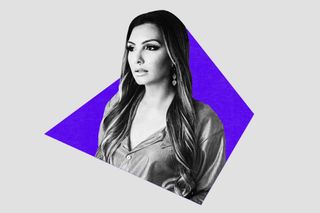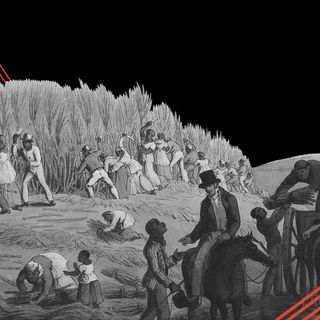
Somy Ali Accused Ex‑Boyfriend Salman Khan of Physical, Emotional Abuse. Why Is No One Listening?
Salman Khan’s enduring popularity — despite previous allegations — forces us to reckon with the immunity of men in positions of power.

Somy Ali, an actor, has publicly admitted to being in an abusive relationship with Bollywood megastar Salman Khan many years ago. Detailing her experience, Ali said: “[H]e would constantly belittle me by calling me ugly, stupid, and dumb. Not a day went by that he wouldn’t make me feel worthless and small. He would not acknowledge me as his girlfriend in public for years, and when he finally did, he would insult me in front of his friends and berate me non-stop.” Besides the emotional abuse, she also alleged that Khan physically assaulted her, adding, “The eight years [I] spent with him were the worst years of my entire existence.”
Despite the media terming Ali’s revelations “shocking,” they’re hardly so. This isn’t the first time Khan has beenaccused of intimate partner violence. In the past, Aishwarya Rai Bachchan — his former girlfriend and a celebrity of international renown in her own right — had accused Khan of “g[etting] physical with me, luckily without leaving any marks.” Khan also reportedly abused another one of his exes, Katrina Kaif. Yet, his success and popularity in Bollywood have hardly been eclipsed by the allegations, forcing us to reckon with the enduring immunity of men in positions of power — and our own continued endorsement of the star.
The question that continues to haunt survivors of assault, though, is how Khan has continued to get away unscathed — is it merely about money and clout, or are there other factors at play, too? The answer isn’t a simple one. His financial and social prowess do, perhaps, play a part in protecting him from the country’s legal machinery and ensuring he has a steady, uninterrupted flow of work. Beyond power, privilege, and clout, though, a string of socio-cultural elements, too, is arguably responsible for endearing him to his expansive fanbase, and in the process, absolving him of his sins in the public eye.
There are uncanny parallels to the recently concluded trial between Hollywood actor Johnny Depp and Amber Heard, where the former’s fanbase worked to discredit the latter’s accusations. Like Depp, what often allows Khan to get away with accusations of assault against multiple women are stories of his kindness — to fellow actors and common citizens alike — abounding in the media.
Related on The Swaddle:
Stop Looking for the Perfect #MeToo Victim
As Ali explains, though, “There is no black and white… while Salman might be the kindest and nicest to others, it does not mean he was the same to me or some other people… he has the capability to be very good and extremely cruel at the same time.” Unlike instances of intimate partner violence, which often take place behind closed doors, demonstrations of his benevolence are routinely performed in front of cameras — leading people to rely on things they witnessed, rather than merely heard, in judging the actor’s moral compass.
Therein lies a quandary that prevents people from recognizing abusers — not just in the instance of Khan, but generally, too. “[T]he very idea that an abuser is evil incarnate… can actually prevent survivors from recognizing abuse, let alone leaving their abusive partner. Human beings — even abusers — are not one-dimensional characters,” noted an earlier article by The Swaddle. “In our rush to brand abusers as nothing but ostensibly diabolic… society may have denied survivors the truth about their abusers: like any other human being, they, too, exist in shades of gray. Doing so has not only resulted in survivors being unable to recognize the abuse meted out to them, but also allowed perpetrators of abuse to go about life without being called out for their behavior simply because they might feed stray animals once in a while, [or] volunteer at NGOs.” Further, perpetrators of abuse can also be “very charismatic, have a circle that appears to love them,” Samriti Makkar Midha, a Mumbai-based psychotherapist, had said.
Ali adds, “Let’s not forget that just because Salman or anyone else is nice to you, they are the same with others [too]. I had it the worst [from him] in terms of verbal, sexual, and physical abuse.”
Furthermore, Khan’s movies — like Tere Naam (2003), Wanted (2009), and Dabangg (2010) — have been instrumental in normalizing abusive behavior, especially in the furtherance of attempts to control women. It’s almost as though his on-screen antics — redeemed as acts of passionate love within the narratives of the movies — prevent his fans from acknowledging his behavior towards his real-life partners as abusive.
Related on The Swaddle:
The Johnny Depp Defamation Verdict Becomes a Precedent for Survivors To Not Speak Up
The sexism embedded in Khan’s movies made its way into his dynamic with Ali, too. She recalls being physically assaulted by Khan every time she sought to pursue relationships with others in her “search for someone who would care for me and love me,” and says, “When Salman learned of these affairs, he had the guts to after beating me saying that I am a man and only men can cheat not women. I was aghast at that statement and the sexism that reeked from it.” The fact that we’re accustomed to expecting chastity for women while believing “men will be men” prevents people from raising their eyebrows at Khan’s antics, then.
As Midha had noted, “When a woman is ‘questioned’ about her whereabouts — like, ‘where were you? who were you talking to? why were you out so late?’ — it seems normal because she has probably grown up seeing men in her family ask these questions of their female partners.” Having grown up in the same culture, Khan’s fans, too, are unlikely to find it jarring, perhaps.
Ali’s revelations also prompt the same question that arose out of the Heard-Depp trial: which women do we believe? Ali’s accusations should have been a #MeToo moment. Instead, her claims were minimized to tabloid fodder, with the allegations reframed as describing a “rocky” relationship.
Accusations of violence against popular, privileged actors like Rai Bachchan and Kaif — who do, to a great extent, fit into the problematic requirements of a “perfect victim” — could hardly dent Khan’s trajectory in the movie industry. It is unlikely, then, that Ali’s allegations — especially as a Pakistani-American woman, which ties her to one of the most persecuted communities in India, currently — will. Meanwhile, Khan’s privilege continues to shield him from the consequences of his actions — highlighting the failures of the #MeToo movement, which has continued to languish against the power that many accused men wield.
Ali had once called Khan the “Harvey Weinstein of Bollywood.” But, unlike Weinstein, Khan is yet to be brought to justice.
Devrupa Rakshit is an Associate Editor at The Swaddle. She is a lawyer by education, a poet by accident, a painter by shaukh, and autistic by birth. You can find her on Instagram @devruparakshit.
Related


Academic Peer‑Reviews Are Heavily Influenced by ‘Status‑bias’: Study
